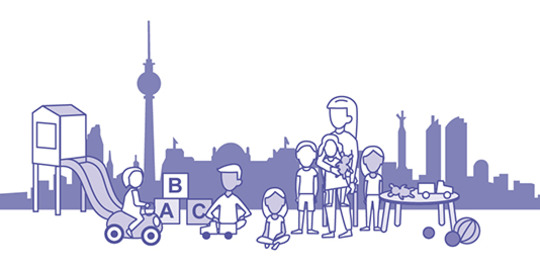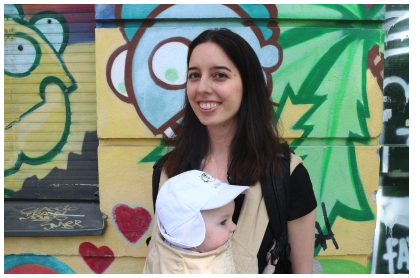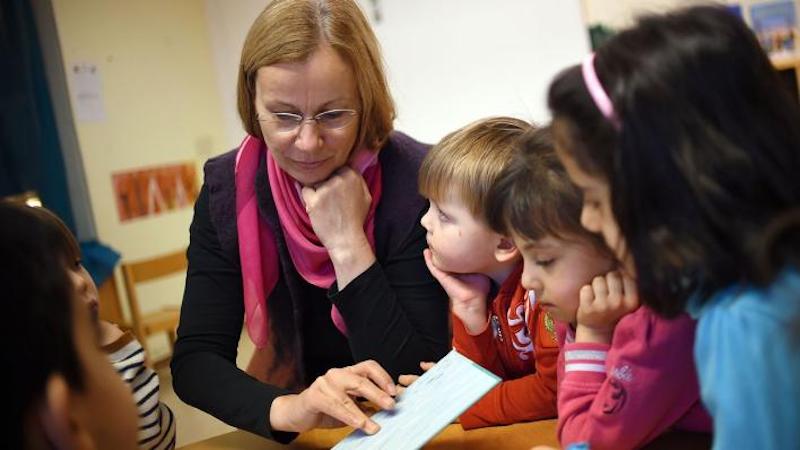(Editor’s note: This is Part 3 in Dispatches’ series on Berlin’s Kita Crisis. You can see Part 1 here and Part 2 here.)
With a rapidly expanding population and an ever-increasing demand for childcare places, the city of Berlin is struggling to cater to its youngest residents. With a shortage of at least 2,500 places (according to the most conservative estimates), Berlin is experiencing a “Kita crisis.”
In parts one and two of our series investigating Berlin’s Kita crisis, we’ve looked at the severity of the situation and some the implications for families. In part three, we look at the situation from the perspective of Berlin’s struggling Kitas, and discuss some of the possible solutions.
Attracting new, retaining qualified educators
One of the main barriers to creating more Kita places in Berlin is a huge shortage of educators, or ‘Erzieher’. At present thousands of potential places are unable to be made available as Kitas struggle to attract qualified educators.
 Educators argue the low salary, difficult working conditions, and societal attitude to the profession are all major barriers to attracting new trainees and retaining those already qualified.
Educators argue the low salary, difficult working conditions, and societal attitude to the profession are all major barriers to attracting new trainees and retaining those already qualified.
Compared to other areas of Berlin, the salary offered to educators is far from competitive. When Nadine, whom we interviewed in Part 2, moved to Berlin from her previous job in Munich, her salary decreased by 800 euros per month.
Thay, an educator working in a “public integration Kita” with children with disabilities explains that Berlin borders the state of Brandenburg, where “Erzieher are better paid and have a better children-to-teacher ratio.”
This means that many educators choose not to seek work in Berlin after they become qualified.
Educators argue that the lack of resources and the current standard ratios of educators-to-children in Berlin makes their work especially challenging.
Burnout, illness are common
Working with children is amazing, but only if you have the resources to do so, Thay said. Otherwise, it can be really stressful, to the point of getting burnt out. And it turns into a vicious circle: we are overwhelmed, some of the teachers get sick, there is no substitute teacher, and those who are hanging on start getting sick, as well.
“Politicians have been making promises for years, saying that there would be a better children-to-teacher ratio but that seems really far from happening,” she said. “Actually they are planning to increase the number of children per group.”
Thay also argues that the situation is difficult for the children. The limited staff and resources often make it difficult to carry out planned activities.
“Our main concern is to get them safely through the day. This should not be the point of an educational facility,” she said.
What’s more, the very tight staff ratios and unavailability of temporary emergency staff to cover staff absences mean that Kitas are asking parents to keep their children at home or even temporarily closing altogether.
Families who have managed to secure a coveted Kita spot are far from immune to the implications of the current situation. Just like the families still struggling to find a place, they too can find themselves waiting at home without childcare options.
What are the solutions?
Campaigners across the board agree that in order to end the current crisis, the city needs to create more Kita places without sacrificing the quality of care and education. And the current system of allocating places needs to become more transparent and efficient.
Both the Kitakrise movement and the open petition demand:
• Better salaries and working conditions for educators that – at the very minimum – match the conditions in neighbouring Brandenburg.
• Further support and investment from government to enable the construction and expansion of Kita premises
• A better system for searching for and allocating Kita places that is centralised, accessible (in multiple languages), transparent and fair

ELISE HANRAHAN
Beyond these longer-term solutions, there also need to be immediate, emergency solutions put in place to alleviate the difficulties families are facing right now. “These families can’t wait until 2019. They need help now,” said Kita Crisis activist Elise Hanrahan said.
As an emergency measure, the Senate has agreed to temporarily compensate parents with payments for private alternative childcare arrangements such as nannies. In practice, it is difficult to access this compensation, since the authorities are not always forthcoming with information about eligibility and how to apply.
“The situation with the funding for a private place is kept pretty low-key,” said Rihannon, a parent who has been awarded temporary compensation. “I hadn’t heard of it before, and it was offered to me by the Jugendamt. Again, I think that was only because I was making noise … I emailed every single day. Every form I dropped in had an attached letter. I really bugged them.”
In order to be eligible for compensation, a family must register with their local Jugendamt, and declare they are unable to find a place. If the Jugendamt is also unable to find a place, the family may be eligible to claim financial compensation.
There must be no appropriate available childcare places open to your child. Appropriate can mean any place that is within a 30-minute commute of your home, which may be in the opposite direction of a parent’s place of work.
Worse before it gets better

Die Leiterin der Kita Regenbogenfisch, Juliana Ringeis, und eine Praktikantin beim Morgenkreis
As it stands, these arrangements are due to end in July, and it is unclear what will be offered after this point.
“So, right now we’ve got a friend looking after our daughter every day, but that’s only being funded by the Jugendamt until the end of July, because the Senate has somehow decreed that by then she’ll have a spot – without being able to guarantee that of course. After that, who knows?” (Rihannon)
One option is the extension of parents entitlement to paid parental leave (Elterngeld) for parents who are prevented from going back to work due to a lack of available childcare options.
“This isn’t ideal. It would be better if parents could go back to work, but we need to offer some kind of solution to bridge this crisis time,” Elise said. This issues needs to be raised at the national level, she added.
Several of the people interviewed for this article predicted the situation is likely to get worse before it gets better. As the academic year ends in the coming months, and the new year begins, invested parties will look on to see which way the situation will turn.
But for now, it would appear that through campaigning for awareness and change, Berlin’s parents and educators have certainly succeeded in driving home the message that the situation in Berlin has reached crisis point.
Whether the city will manage to take effective steps to address this crisis is yet to be seen.
About the author:
Laura Kaye is a freelance writer, researcher and editor. Her work focuses on social and development issues, parenting and family life.
Originally from the Wirral in the United Kingdom, she is a serial expat now happily living in Berlin, Germany.
 More posts by Laura Kaye
More posts by Laura Kaye
An open letter to the undecided: ‘My family is right at the heart of the EU membership vote’
Having a baby in Berlin: Medicine, rather than modesty, is the aim of the game in Germany
Having a baby in Berlin, Pt. 2: Learning German whilst pregnant so we’re not ‘those expats’
Having a baby in Berlin, Pt. 3: A Berliner is born, and the German benefits you need to know about
Hugsy: ‘Kangaroo Care’ product for babies doesn’t replace mum and dad but extends their reach
Laura Kaye is a freelance writer, researcher and editor. Her work focuses on social and development issues, parenting and family life.
Originally from the Wirral in the United Kingdom, she is a serial expat now happily living in Berlin, Germany.















